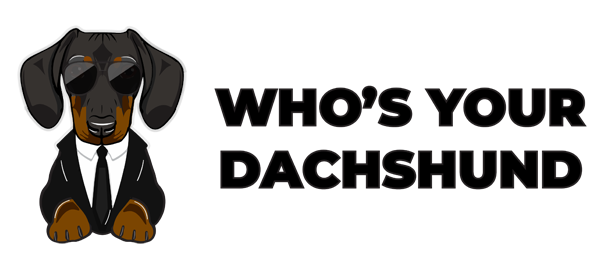
Exercise
Coughing in Dachshunds can be due to allergies or asthma. To help your pet overcome the coughing, you need to exercise them outside of the house at least once a day like walking. That will help promote proper lung function and reduce the likelihood of coughing spells while indoors.
Cyproheptadine for Dachshund Coughing
Cyproheptadine is an antihistamine popular among dogs and cats for relieving allergies, including grass pollen, ragweed, and mold spores. In dogs, it is also used as a treatment for urinary incontinence and occasionally to relieve itching and gas. Cyproheptadine is available as 0.25 mg tablets only.
Anti-inflammatory Medication for Dachshund Coughing
In many cases, dogs with chronic coughing have a combination of upper respiratory conditions like allergies or asthma. Medications that:
- reduce the inflammation of a dog’s airways
- are antihistamines
- inhibit prostaglandin-E2 production help relieve coughing in Dachshunds
At this time, no medications can completely cure the congestion that causes chronic coughing in older Dachshunds. These medications can be used, one-by-one, in the following order to see how your dog responds.
Why does my dog keep coughing?
Listed below are six possible reasons why your dog might be coughing:
- Foreign material in the lungs, such as hair or an entire sock, can irritate the respiratory tract and cause a persistent cough.
- Something called “cilia” is present in a dog’s nose and throat. When the cilia stop functioning correctly, they can cause a cough.
- Your dog may have food or some other object lodged in his throat. He might be coughing to help dislodge the object in his throat.
- Another possible cause of a persistent cough is an acute cold. A dog suffering from acute colds will have a persistent cough that’s usually accompanied by nasal discharge.
- Your dog could be suffering from an allergy. It is prevalent in dogs with allergies to certain plants or animals. If your dog has an allergy, it will likely exhibit an itchy, watery nose and may even have a runny or cloudy eye.
- A final possible cause of your dog’s cough is the result of an upper respiratory infection (URI). A URI is a condition where the upper airways are infected. A persistent cough usually accompanies upper airway infections.
How Do I Know For Sure If My Dog Has a Case of Cough?
- A persistent or frequent cough can be a sign that your dog has an upper respiratory infection (URI). Upper respiratory infections are often accompanied by nasal discharge and sometimes include sneezing and fever.
- The presence of nasal discharge or sneezing can indicate that your dog has an upper respiratory infection.
- An upper respiratory infection is most likely to occur in the winter as the air is dry and cold. It can also be triggered by exposure to allergens such as certain plants.
What Should I Do If My Dog Has a Cough?
- A persistent cough might indicate that your dog has an upper respiratory infection (URI). If you think your dog might have an upper respiratory infection, make an appointment with your vet as soon as possible. An upper respiratory infection will only get worse without treatment.
- You can purchase over-the-counter medications that can help your dog breathe more quickly if you have reason to think he’s suffering from an acute cold. Keep in mind that these products only relieve the symptoms and do not cure them.
- The best way to help your dog with a persistent cough is to keep him isolated from other dogs and people until his vet sees him. Don’t let him lick anyone or anything – especially if he has a runny or cloudy eye.
- As your dog’s coughing worsens, he’ll likely be less likely to eat. If you’re worried about your dog’s weight, ask the vet about using a cough suppressant such as Xylitol in his food.
- If you deem your dog may have eaten a foreign object, take him to the vet immediately.
6 Reasons Why My Dog Coughs
Dogs are better than people, so it’s always a bummer when they’re not feeling well. If you’ve noticed an increase in your dog’s coughing, don’t panic! We’ll be exploring six potential causes of the cough in this post.
1. Heart Disease
The leading reason for dogs’ death is heart disease, and a sick heart will present various symptoms. Giving your dog medications that alter heart function—such as ACE inhibitors or beta-blockers—can also lead to symptoms. Sometimes, simply giving your dog respite from stress will help him function better.
Symptoms of heart disease in dogs include:
- Rapid breathing, especially when the dog is active or panting
- The heart’s abnormal rhythms include an irregular heartbeat or very rapid beats—weak pulses in the neck and legs. The sudden collapse seems unrelated to external circumstances (i.e., going up or downstairs, playing catch).
- Poor circulation in parts of the lower extremities resulting in cold feet and discoloration of the skin on the toes and pads
2. Pneumonia
Pneumonia is a lung inflammation that can sometimes cause serious complications. When pneumonia involves the respiratory tract, one of the initial symptoms is coughing. The cough might be severe enough to lead to blood-tinged mucus production in your pup’s mouth. It may also have difficulty breathing.
3. Kennel Cough
“Kennel cough” is an infection of the upper respiratory tract that can occur in dogs of any age. Dogs are especially susceptible to kennel cough when exposed to other dogs with a similar infection. If your dog develops kennel cough symptoms, there’s no need to panic. It is a harmless viral infection that your vet can treat with medication prescribed. The best way to prevent it is to keep your dog from interacting with other dogs in kennel environments.
How Do I Know If My Dog Has a Case of Kennel Cough?
- Kennel cough is characterized by coughing, sneezing, nasal discharge, and a runny or sore eye. Your dog’s cough will sound thick and productive as he breathes out. A runny or sore eye is usually accompanied by redness.
- Initially, you may mistakenly think that your dog has been trying to cough up a hairball.
- As the disease progresses, your dog might develop a high fever. It might also have difficulty breathing and show signs of lower gastrointestinal bloat or diarrhea. If its condition seems to worsen, make an appointment with your veterinarian as soon as possible.
- Tracheal Collapse
4. Tracheal collapse
Tracheal collapse is a life-threatening condition where a dog’s trachea—the airway that carries air to and from the lungs—becomes blocked. Collapsed tracheas can damage heart tissue, blood vessels, and nerves in the lungs.
Symptoms of collapsed trachea include:
- Coughing
- Difficulty breathing
- Wheezing (snoring)
- Difficulty swallowing or regurgitation of food or liquid
5. Heartworm Disease
Heartworm disease is caused by heartworms (Dirofilaria immitis) and affects all parts of the world. Most infections are within the domestic dog, but it can also affect wild canids such as foxes, coyotes, and dogs in endemic areas of Asia, Africa, and Australia. Infected dogs usually become ill between 1 to 3 years of age. However, some have been known to show signs as young as six months old or even puppies.
Symptoms occur unexpectedly and include:
- Lethargy
- Exercise intolerance
- Weight loss
- Hair Loss
- Increased respiratory rate
- Diarrhea
- Abdominal pain and vomiting (occasionally)
- Fever, cough, and dyspnea (occasionally)
- Heart failure (if left untreated)
6. Canine Influenza
Canine influenza is an illness that dogs contract due to an infected virus. The disease is highly contagious and can cause high morbidity and mortality rates in dogs. It is usually limited to dogs two years of age and older but can infect younger dogs, too. The virus does not always cause clinical signs, but infected dogs can spread the disease by respiratory secretions if they become ill.
Symptoms include:
- Coughing
- Sneezing
- Nasal discharge
- Fever
- Lethargy
- Loss of appetite
- Abdominal pain or vomiting (occasionally)
How Should I Handle a Coughing Dog?
Usually, an occasional cough is not caused for concern, but if your dog coughs excessively or more often than usual, it’s time to call your vet. If the cough persists after a visit to the vet, it might indicate a more health issues. The most common cause of persistent coughing is an irritation of the airway by a foreign body lodged in the throat or nasal passages. The best way to rule out this possibility is to have your dog thoroughly examined by your vet to ensure there are no other causes for the cough.
Why Does My Dachshund Snort?
Dachshunds will occasionally snort when they eat or drink. That’s because their noses are pushed up against their teeth. Dachshunds don’t have a lot of bone in their noses, so the nose is very close to their teeth. When this happens, the breath gets trapped between the two and bubbles up through the nostrils.
When Your Dog Can’t Stop Coughing
A common respiratory infection can sometimes cause a dog’s cough. If your puppies are coughing, they may have one of these infections. You should contact your veterinarian for treatment options. Sometimes, your veterinarian will prescribe antibiotics for the puppies to help them get back to normal.
Treating a cough is very important because it may prevent the dog from having severe pneumonia. If your puppy has a cough, you should keep an eye on his progress. As time goes by, the cough may be less frequent or even go away altogether. The treatment goal is to get your puppy back to normal breathing gradually. So stay with him and take him to his veterinarian as soon as you notice a problem.
A virus causes the most common respiratory infection. So the best way to treat it is with rest, plenty of water, and medicine prescribed by your veterinarian.
Keeping your puppies indoors will limit the number of germs they bring into the house. It will also limit their interaction with other dogs with the same infection. It will help prevent them from getting sick and spreading it in your household.

